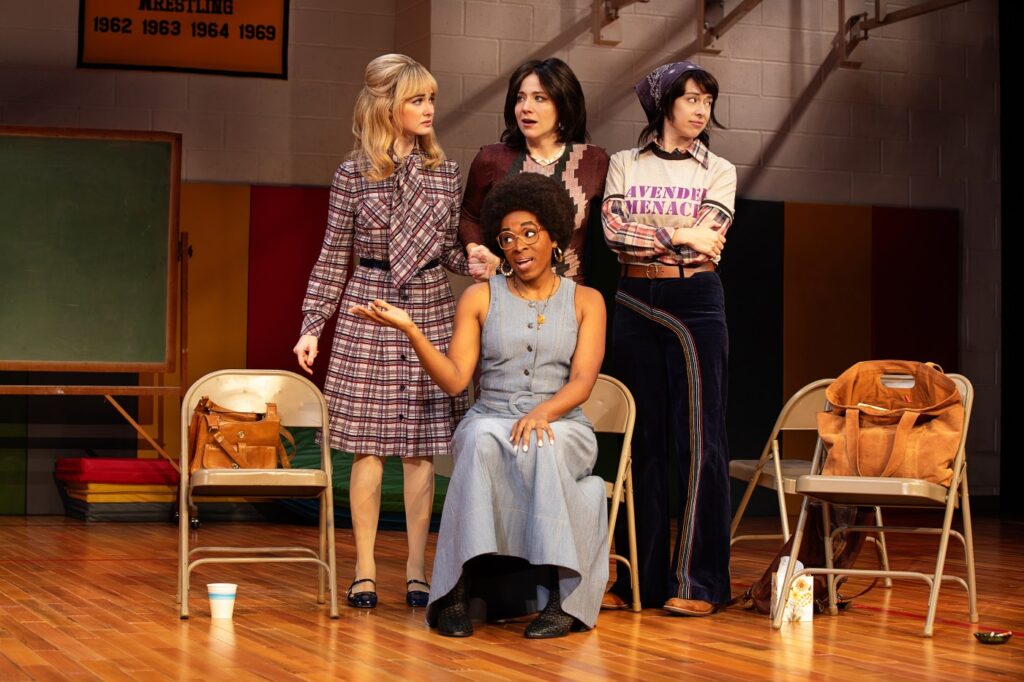
BREAKING: The highly anticipated Broadway play “Liberation,” written by Bess Wohl, is making waves with its provocative exploration of second-wave feminism. Just premiered on Broadway, the performance has sparked immediate conversation about the sacrifices of past feminists and their relevance today.
This ambitious production, first seen off-Broadway, is a heartfelt tribute to the pioneers of feminism who fought for respect, equal pay, reproductive rights, and sexual freedom. As audiences settle into their seats, they are reminded that their phones will be locked away, allowing for a genuine reflection on the themes presented—one that resonates deeply in our current social climate.
“Why did you make these sacrifices? Did they bring you happiness?” These pressing questions echo throughout the play, as Lizzie (played by Susannah Flood) grapples with her mother’s past and the legacy of the Baby Boomer feminists. The play dives into the complexity of generational struggles, asking whether these women truly liberated anyone beyond their immediate circles.
Set in a high school gymnasium somewhere in Ohio, the show uses a relatable backdrop to navigate the 1970s consciousness-raising meetings. Wohl’s writing is both introspective and challenging, questioning the very fabric of the feminist movement and its impact on contemporary society.
The ensemble cast, featuring talents like Kristolyn Lloyd and Audrey Corsa, delivers powerful performances that breathe life into the characters. The portrayal of women navigating personal relationships and societal expectations adds emotional depth, making the audience reflect on their own roles in the ongoing struggle for equality.
Critics are already buzzing about the potential for Tony Award nominations, particularly for the ensemble cast, which has been described as “formidable.” The play does not shy away from addressing criticisms—Wohl confronts the issues of privilege within the feminist movement head-on, ensuring that the conversation remains relevant and inclusive.
As the curtain rises, audiences are drawn into a dialogue that examines whether the progress made by earlier feminists has been sustained or if it has faltered. The questions raised are not just historical but resonate with current societal debates, making “Liberation” a must-see for anyone engaged in the conversation about gender equality today.
With a runtime that challenges the typical Broadway experience, this production encourages viewers to ponder the implications of choice, sacrifice, and empowerment. As Lizzie wrestles with her mother’s decisions, the play invites the audience to reflect on their own lives and the broader implications of the feminist movement.
As “Liberation” continues to captivate audiences, it stands as a significant piece of theater that not only entertains but also educates and challenges perceptions. This urgent exploration of feminism’s complex legacy is one you won’t want to miss.
Stay tuned for more updates as the conversation evolves around this groundbreaking production. Don’t forget to share your thoughts and experiences on social media using #LiberationPlay.





